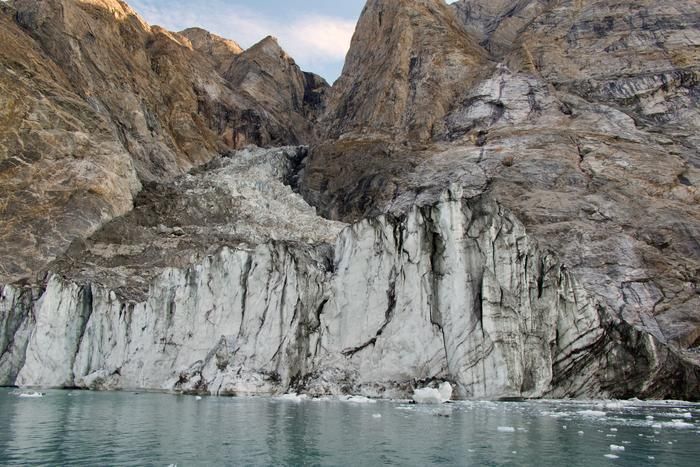Scientists have finally identified the cause of a mysterious seismic signal that shook Earth for nine consecutive days last year. It turns out that our planet was rocked by a mega tsunami trapped inside a fjord after a mountaintop collapse.
The gigantic wave, measuring 650 feet (200 meters) high, sloshed back and forth inside East Greenland’s Dickson Fjord for nine days in September 2023, its movement sending seismic waves reverberating through the planet’s crust.
Scientists were initially baffled by the signal. But an investigation using satellite and ground imagery eventually tracked the cause of the seismic activity to the mountain, which was destabilized by climate change melting the glacier at its base. The researchers published their findings today (Sept. 12) in the journal Science.
“When we set out on this scientific adventure, everybody was puzzled and no one had the faintest idea what caused this signal,” study lead author Kristian Svennevig, a geologist at the Geological Survey of Denmark and Greenland (GEUS), said in a statement. “All we knew was that it was somehow associated with the landslide. We only managed to solve this enigma through a huge interdisciplinary and international effort.”
After being picked up by seismic monitoring stations in September, two aspects of the signal puzzled scientists. Firstly, unlike higher-frequency earthquakes, it was oscillating with a 92-second interval between peaks. And secondly, it was doing this for days on end.
Scientists soon tied the possible cause to a landslide in the fjord, but to understand how it produced the signal, the scientists combined field measurements, satellite imagery and supercomputer models to reconstruct what happened.
Related: When was the last time Antarctica was ice-free?
Their investigation revealed that a massive landslide most likely caused a tsunami wave to rock back and forth across the narrow fjord — a phenomenon known as a seiche.
“It was a big challenge to do an accurate computer simulation of such a long-lasting, sloshing tsunami,” study co-author Alice Gabriel, a seismologist at the University of California, San Diego, said in the statement.
The landslide that caused the giant tsunami was the result of climate change, the researchers said. Climate change is melting the ice around the poles at an accelerating rate, and in the fjord’s case it dislodged 33 million cubic yards (25 million cubic meters) of rock and ice — roughly the equivalent of 10,000 Olympic-size swimming pools — and sent it crashing into the sea.
No one was harmed by the collapse, but the wave did destroy $200,000 of infrastructure at an unoccupied research station on nearby Ella Island. The researchers say that the worsening effects of climate change could cause more destructive landslides around polar regions.
“Climate change is shifting what is typical on Earth, and it can set unusual events into motion,” Gabriel said.
The researchers hope that their discovery of the seismic signal’s origins will inspire others to look through the seismic record for similar events, which could help them identify the exact conditions that lead to potentially devastating polar landslides.
“This shows there is stuff out there that we still don’t understand and haven’t seen before,” study co-author Carl Ebeling, a geophysicist at the University of California, San Diego, said in the statement. “The essence of science is trying to answer a question we don’t know the answer to — that’s why this was so exciting to work on.”

